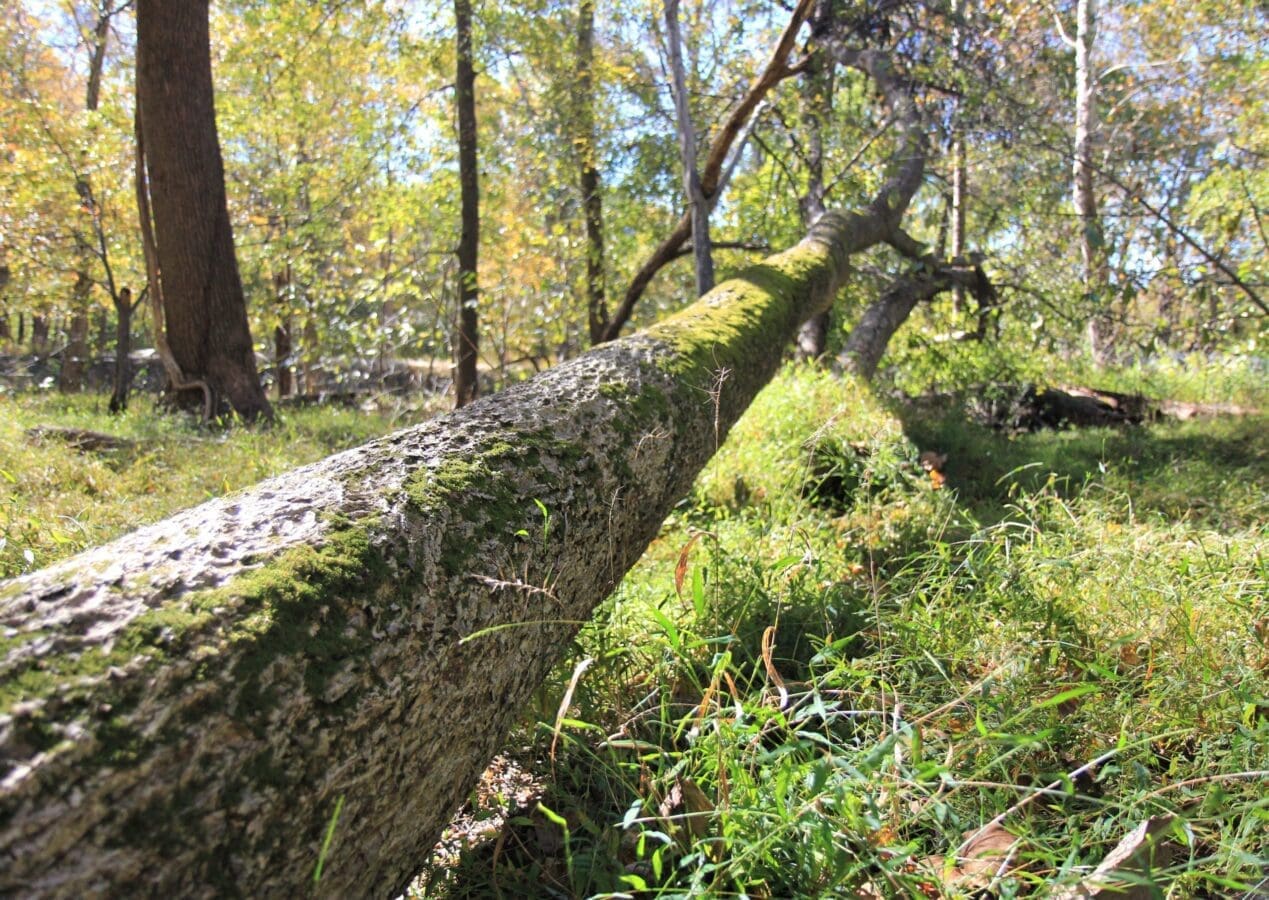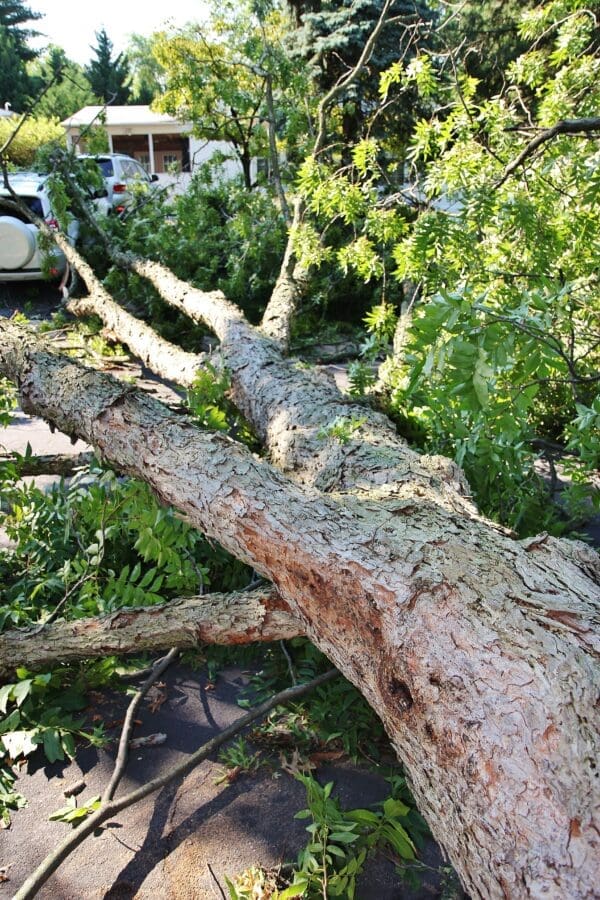
Maryland Legal Tree Disputes and Tree Damage
Maryland property ownership and maintenance often involves trees, and trees can create potential legal liability, damage, risks, and disputes. With regard to neighboring properties, trees and other vegetation can often cause legal disputes regarding possible risks to a landowner’s own property or home. With regard to a landowner’s own property, trees and other vegetation can become a serious concern when a neighbor is either (1) claiming ownership of the tree/vegetation or (2) unlawfully cutting or destroying a specific tree/vegetation. Maryland property owners have legal rights regarding adjacent trees, roots, growth, branches, and vegetation, and Maryland courts have specifically addressed tree related lawsuits, tree disputes, and tree litigation. Some of the questions that Maryland property owners face related to trees/vegetation are:
- What are my rights to remove or cut my neighbor’s trees?
- What are my rights to remove or cut my neighbor’s tree roots?
- What are my rights to legally force my neighbor’s trees’ removal?
- What are my rights when my neighbor’s tree, tree limb, or roots damages my property?
- What are my legal liabilities my tree threatens or damages my neighbor’s property?
Through its interpretation of Maryland property law, the Maryland Court of Appeals has held that a landowner cannot generally bring a lawsuit against a neighbor whose trees and other vegetation has encroached and damaged the landowner’s property. (Melnick v. C.S.X. Corp.) However there do exist exceptions to this Maryland tree rule. The Maryland high court has decided to use a legal theory commonly referred to as the “Massachusetts Rule” which — in most situations — limits the remedy of the property owner that is harmed to a term called “self-help.” In most situations, a Maryland property owner cannot sue their neighbor for damage due to a tree or vegetation if owner could possibly have removed the encroaching tree parts at issue themselves.
 The issue is not simple, however. Maryland courts have given Maryland property owners this “self-help” legal right only under limited circumstances to address legally neighboring property owners’ trees, plants, or tree roots that have encroached on their property. This tree-related “self-help” legal right in Maryland can apply to property owners, but only when certain facts are present. A Maryland property owner can still be held liable where dead or dying tree limbs from trees on his property injure others. The Maryland’s Court of Special Appeals found that the owner of rural or suburban forest land is not liable for the damage done by dead tree limbs falling onto property unless the tree constitutes a “danger to lawful users of abutting public roads and the owner is aware or should be aware of the tree’s deteriorated condition.” (Hensley v. Montgomery County) The court differentiated the difference between a property owner in a rural area (e.g., Potomac, Germantown, Darnestown, Friendsville, or Hagerstown) and a property owner in an urban or suburban area (e.g., Rockville, Bethesda, Silver Spring, or Baltimore). As such, the Maryland Court of Appeals court noted that the rural property owners might not have a duty to inspect their trees (on their rural property) next to neighboring properties for dead or decaying limbs as a result of the the difficulty of doing so. Nonetheless, an urban property owner might be responsible for a easily inspected trees. Thus, under Maryland law, urban property owners have different duties related to neighboring property owners compared to rural property owners. Therefore, “self-help” does apply for Maryland property owners; however, the exact facts related to the each specific tree/plant at issue as well as characteristics the property at issue (rural vs. urban) are critical in understanding a property owner’s rights.
The issue is not simple, however. Maryland courts have given Maryland property owners this “self-help” legal right only under limited circumstances to address legally neighboring property owners’ trees, plants, or tree roots that have encroached on their property. This tree-related “self-help” legal right in Maryland can apply to property owners, but only when certain facts are present. A Maryland property owner can still be held liable where dead or dying tree limbs from trees on his property injure others. The Maryland’s Court of Special Appeals found that the owner of rural or suburban forest land is not liable for the damage done by dead tree limbs falling onto property unless the tree constitutes a “danger to lawful users of abutting public roads and the owner is aware or should be aware of the tree’s deteriorated condition.” (Hensley v. Montgomery County) The court differentiated the difference between a property owner in a rural area (e.g., Potomac, Germantown, Darnestown, Friendsville, or Hagerstown) and a property owner in an urban or suburban area (e.g., Rockville, Bethesda, Silver Spring, or Baltimore). As such, the Maryland Court of Appeals court noted that the rural property owners might not have a duty to inspect their trees (on their rural property) next to neighboring properties for dead or decaying limbs as a result of the the difficulty of doing so. Nonetheless, an urban property owner might be responsible for a easily inspected trees. Thus, under Maryland law, urban property owners have different duties related to neighboring property owners compared to rural property owners. Therefore, “self-help” does apply for Maryland property owners; however, the exact facts related to the each specific tree/plant at issue as well as characteristics the property at issue (rural vs. urban) are critical in understanding a property owner’s rights.
Additionally, the Maryland Attorney General has clarified in a separate opinion that a property owner, under Maryland law, has the right — only under certain circumstances related to the condition of the tree and the nature of the abutting property — to cut the encroaching tree parts on a neighboring property back to the property line. However, the Attorney General, along with the Maryland Court of Appeals, has stressed that the specific facts related to the tree at issue and the property characteristics will weigh on the legal rights of the Maryland property owner.
Adam Van Grack and Longman & Van Grack’s Maryland litigation attorneys includes property lawyers who have addressed different types of Maryland property lawsuits and tree disputes in many courts throughout Maryland. Our firm’s property attorneys have also address legal issues related to fence laws and adverse possession. Our tree dispute and property dispute attorneys have handled tree lawsuits and property lawsuits in Montgomery County Circuit Court (Rockville, MD), Prince George’s County Circuit Court, Frederick County Circuit Court, Washington County Circuit Court, Howard County Circuit Court, and Baltimore County Circuit Court. If you would like to discuss a Maryland property litigation, tree, or property issue with Mr. Van Grack or another property attorney, call Longman & Van Grack’s property attorneys today at (301) 291-5027 to schedule a consultation in our Bethesda, Maryland and Rockville, Maryland offices.
